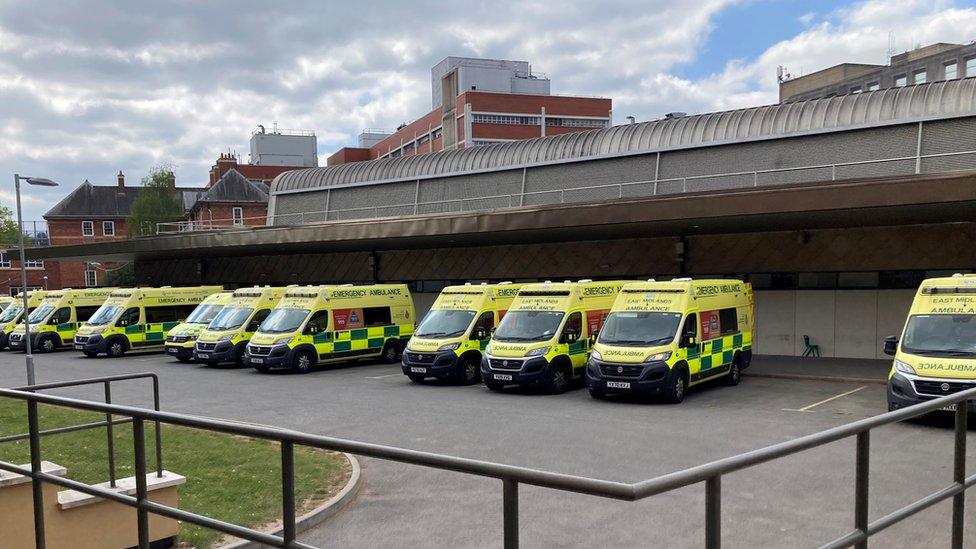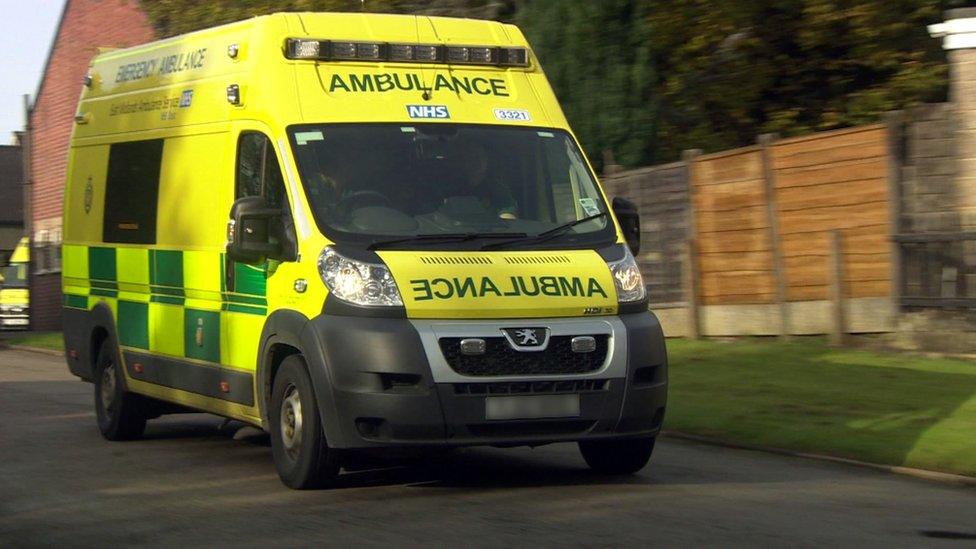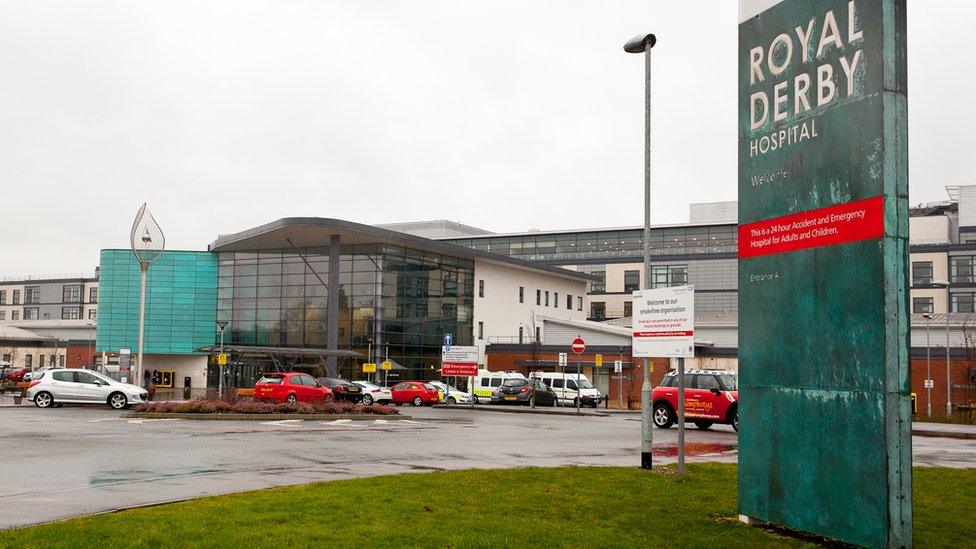East Midlands Ambulance Trust says every hospital on 'worry list'
- Published

East Midlands Ambulance Service's director of operations said the region's hospitals "have problems everywhere"
Ambulance bosses say every hospital in the East Midlands is on their "worry list" with A&E delays amounting to thousands of wasted shifts.
Paramedics are being forced to wait to drop off patients at hospitals across the region, with average handover times at more than three times the UK target.
East Midlands Ambulance Service (EMAS) discussed ongoing pressures at its annual meeting on Thursday.
A leader said the region's hospitals "have problems everywhere".
Speaking at the meeting, Ben Holdaway, the trust's director of operations, said problems which used to be isolated to one or two acute hospitals have now spread.
"I am not more concerned about one area than the other, I think they are all up there now on our worry list and we are working with all of the systems to try and improve that," he said.
The Local Democracy Reporting Service said Mr Holdaway told the meeting while there was a national target to take no longer than 15 minutes to transfer a patient into a hospital, the trust's average over the past year was 40 minutes, with some patients waiting "over an hour".
He said, in total, the trust had lost 125,500 hours due to hospital handover delays in the 2021/22 financial year, an increase of 110% on the previous 12 months and equivalent to 29 wasted 12-hour shifts a day.

The East Midlands Ambulance Service are losing 29 full shifts a day to waiting times
The meeting also heard that all NHS services were working to improve patient flow, with delays seen in almost every stage of care.
Slow handover times were affecting A&E services and beds were being held up by people whose health conditions may have progressed more following the pandemic backlog.
This culminates in discharged delays as a result of a shortage in care home space and social care packages for treatment at home.
The trust also saw 200,000 more 999 calls last year and on a number of days during the July heat wave of this year, handlers recorded as many calls as New Year's Eve - traditionally their busiest day of the year.
Nichola Bramhall, the trust's director of quality improvement and patient safety, said there had been 74 serious incidents logged in the 2021/22 financial year, up from 38 the previous term.

Follow BBC East Midlands on Facebook, external, Twitter, external, or Instagram, external. Send your story ideas to eastmidsnews@bbc.co.uk.
Related topics
- Published21 July 2022

- Published16 June 2022
